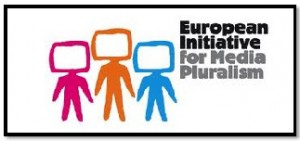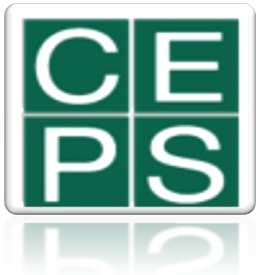CEPS, in cooperation with the European University Institute, organised a roundtable on:
“Media Pluralism and Freedom of Expression in the Internet Age”
The Centre for European Political Studies organised a workshop “Media pluralism and freedom of expression in Internet age” which took place on 20th March 2013.
The European Commission helped with the organisation of this workshop in order to provide an opportunity for independent experts to express their opinion on how the traditional notion of pluralism might be adapted to the digital age.
Experts like, Sana Saleem, Bolo Bhi Director; Eli Noam, Columbia University CITI; Peggy Valcke, Catholic University of Louvain and Federica Casarosa, European University Institute. The European Professionals Network is glad to report the recommendations that the Pan European Forum on Media Pluralism & New Media elaborated:
- First of all, in order to identify the best possible policy options, it is important to understand the current Internet media landscape. Therefore, it is important to raise awareness about the following facts:
- Internet is considered to constitute an environment in which media pluralism is easy to ensure. However, it is important to raise awareness that nowadays, Internet media is a highly concentrated market.
- Despite its universality, Internet media markets are different according to the countries. In particular, those markets are different in developed and in developing countries.
- It is important to recognize that the Internet does not only constitute a tool enabling for free expression, but that it can be also used as a surveillance tool.
- The massive abundance of available content does not ensure media pluralism as consumers are not able to process this amount of content.
- Only after better understanding the current situation of media in Internet age, it is possible to lay down some proposals for ensuring media freedom and freedom of speech in Internet age. The following proposals should be considered:
- Tools are needed to systematically monitor different factors which have impact on media pluralisms. Those tools should take into account the specificity of the Internet.
- There should be a strong focus on interoperability in order to lower barriers of entry into media market.
- Copyright provisions also play an important role in ensuring media freedom. Some changes may include the liberalisation of copyright or the introduction in some cases of compulsory licensing.
- User-empowerment should be one of key actions. This might be implemented not only in raising-awareness actions, but also through better use of possibilities given by the user-generated content
- Pluralism of media should also mean “pluralism of sources” – it is important to ensure that information come from diversified sources
- A “diversity by design” notion should be introduced. This principle would mean that intermediaries who enable finding information should actually contribute to ensuring media pluralism.
- It is argued that certain rules imposed on traditional media are not well applied to new media, creating a disturbance in the equal level-playing field. Those rules include for instance competition law, obligations of public broadcasters, privacy laws etc. A proper consideration is needed to ensure that those rules, to the extent possible, are also applicable to Internet users.
- A global nature of the Internet must be recognised. Therefore, the development of international common standards in the area of media pluralism should be considered.
 EPN was delighted to have the opportunity to be part of the roundtable and shares Mrs. Valke final conclusion in media diversity. Twenty years after the ‘big leap forward’ in democracy, media pluralism is in trouble in too many countries within the wider Europe. Governmental or oligarchic monopolies are getting thicker by the year, and not only in post-Soviet nations but also inside the EU walls. The burgeoning internet-based media alone cannot provide for a functioning diversity of public opinion, and yet they are already under attack. We should pick the brains of all those concerned for the future of our shared freedoms, and move the European Union beyond non-intervention to become a protector of media diversity in our nations.
EPN was delighted to have the opportunity to be part of the roundtable and shares Mrs. Valke final conclusion in media diversity. Twenty years after the ‘big leap forward’ in democracy, media pluralism is in trouble in too many countries within the wider Europe. Governmental or oligarchic monopolies are getting thicker by the year, and not only in post-Soviet nations but also inside the EU walls. The burgeoning internet-based media alone cannot provide for a functioning diversity of public opinion, and yet they are already under attack. We should pick the brains of all those concerned for the future of our shared freedoms, and move the European Union beyond non-intervention to become a protector of media diversity in our nations.

